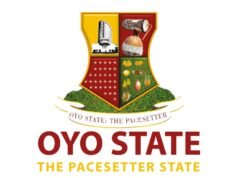The Philippines, with its inclusive educational system, has become a destination for international students looking to further their studies. In particular, those holding Higher National Diploma (HND) certificates, as well as graduates with Second Class and Third Class degrees, might wonder how they can pursue Masters’s degree programs in the Philippines.
The good news is several institutions across the country recognize these qualifications, providing students with the opportunity to enhance their education and career prospects.
In this blog post, we’ll explore the criteria for admission, list the universities and schools that accept these qualifications for Masters’s degree programs, and discuss how to navigate the application process.
Criteria For Admission In Philippines Universities and Schools
Table of Contents
Gaining admission into a Masters’s degree program in the Philippines with an HND certificate, Second Class, or Third Class degree involves navigating specific criteria set by the institutions. Below are the general criteria and documents most Philippines universities and schools may ask for:
- Proof of English Proficiency: For non-native English speakers, most institutions require proof of English proficiency. This is typically demonstrated through standardized tests such as the TOEFL or IELTS, with minimum score requirements set by each university.
- Letters of Recommendation: Two or more letters of recommendation from former professors or employers can strengthen an application. These letters should attest to the applicant’s academic and professional abilities, as well as their potential for success in graduate studies.
- Updated CV or Resume: An updated CV or resume that highlights educational qualifications, work experience, and any relevant skills or achievements.
- Interview: Some programs may require an interview, either in person or via teleconference, as part of the admissions process. This provides an opportunity for the admissions committee to assess the applicant’s communication skills and motivation for pursuing further studies.
- Additional Requirements: Depending on the program or university, there may be additional requirements such as a portfolio for creative courses, GMAT scores for business programs, or specific pre-requisite courses.
Applicants are strongly advised to visit the official website of their chosen university or contact the admissions office directly for the most accurate and up-to-date admission criteria. Preparing well in advance and ensuring all documentation is complete and of high quality can significantly enhance the chances of admission into a Masters’s degree program in the Philippines with an HND, Second Class, or Third Class degree.
Read Also: NDDC Postgraduate Overseas Scholarship Application 2024/2025
Philippines Universities that Accept HND Certificates, Second Class and 3rd Class for Masters Degree Programs
These institutions offer a range of Master’s degree programs across various fields of study, providing opportunities for further education and professional advancement. Below is a curated list of universities in the Philippines known to accept these qualifications for their Master’s degree programs:
1) University of the Philippines (UP)
As the country’s premier state university, UP offers several graduate programs that consider applicants with a wide range of undergraduate performance, understanding the value of diverse academic experiences.
2) Ateneo de Manila University
Known for its strong liberal arts foundation, Ateneo de Manila provides Master’s programs that are accessible to students with HND certificates and those who have graduated with Second or Third Class honors, provided they meet other specific admission requirements.
3) De La Salle University (DLSU)
DLSU has a reputation for excellence in business, engineering, and education fields. The university is open to considering applicants with varied undergraduate achievements for its Master’s degree programs.
4) University of Santo Tomas (UST)
UST, one of the oldest universities in Asia, offers a variety of graduate programs. They look at the holistic profile of applicants, including those with HND certificates or lower undergraduate classifications.
5) Polytechnic University of the Philippines (PUP)
PUP provides affordable education without compromising quality and is open to students from various academic backgrounds for its Master’s degree programs.
6) Mapua University
With a strong emphasis on engineering and technology, Mapua University accepts students with HND certificates and those who have achieved Second and Third Class honors into its Master’s degree programs.
Each of these universities has its own set of additional requirements and it’s imperative for potential applicants to directly engage with the admissions office or consult the official university website for the most current and detailed admission criteria. Prospective students should prepare to showcase their full academic and professional potential, beyond the grades, to gain admission into these competitive programs.
Philippines Schools that Accept HND Certificates, Second Class and 3rd Class for Masters Degree Programs
These schools not only recognize the value of diverse academic backgrounds but also offer unique programs tailored to the professional and academic growth of their students. Below, we highlight some of these specialized institutions:
1) Asian Institute of Management (AIM)
AIM is renowned for its focus on business and management courses. It is particularly receptive to students with practical experience and diverse educational qualifications, including those with HND certificates, making it an ideal choice for aspiring business leaders and managers.
2) Technological University of the Philippines (TUP)
For those interested in technology and engineering, TUP offers advanced education and training. The university values practical skills and academic achievements alike, welcoming students with Second and Third Class degrees into its Master’s programs.
3) Philippine Normal University (PNU)
PNU is the premier institution for education and teacher training in the country. It offers Master’s programs in education for students with varying academic backgrounds, including those with HND Certificates and lower degree classifications, emphasizing the development of high-quality educators.
4) Mindanao State University (MSU)
MSU is known for its commitment to serving students from all over the Philippines, including those from marginalized and underserved communities. Its graduate programs in various disciplines are accessible to students with HND certificates and those who graduated with Second or Third Class honors.
5) Central Philippine University (CPU)
CPU offers a range of Master’s programs in the fields of engineering, business, and health sciences. The university acknowledges the potential of students with diverse educational backgrounds and encourages applications from those with HND certificates and lower undergraduate honors.
These specialized institutions complement the broader spectrum of universities in the Philippines by offering targeted and niche programs that cater to specific career paths and academic interests. Applicants interested in these fields are encouraged to explore these schools further and consider how their unique programs align with their professional and academic goals.
FAQS
What are the requirements in taking a master’s degree in the Philippines?
The requirements for a master’s degree in the Philippines vary depending on the university and the specific program, but there are some general requirements that all applicants must meet. First, applicants must have a bachelor’s degree from an accredited university. Most universities also require a minimum GPA for admission, typically around 2.5 on a 4.0 scale.
Can I use HND for Masters?
Whether or not you can use a Higher National Diploma (HND) to gain entry into a master’s degree program depends on the university, the country, and the specific program you’re applying to. While some universities may not accept an HND as a qualification for entry into their master’s programs, others may be more flexible. T
Can I do Masters with a third class degree in the USA?
Generally, it is not possible to pursue a master’s degree in the United States with a third class degree. This is because the U.S. education system typically requires a four-year bachelor’s degree for admission into a master’s program, and a third class degree does not meet that requirement. However, there may be some exceptions, and it is always best to check with the specific university and program you’re interested in to see if they have any special requirements.
Does Sweden university accept HND for Masters?
HNDs, or Higher National Diplomas, are not typically accepted as a direct entry qualification for master’s programs in Sweden. However, many Swedish universities offer preparatory courses for students who don’t meet the requirements for direct admission.
What are the minimum requirements for Masters?
The minimum requirements for a master’s degree vary depending on the university and program. However, most programs require a bachelor’s degree in a related field with a minimum grade point average (GPA) of 3.0 on a 4.0 scale.
Conclusion
The Philippines is home to many universities and schools that accept students with HNDs, second class, and third class degrees for master’s degree programs. Students can find a variety of options that fit their interests and needs, whether they’re looking for a large university experience or a smaller, more intimate learning environment.
The Philippines also offers a diverse range of locations, from bustling cities to rural areas with a slower pace of life. With so many options available, students can find the perfect school and program to fit their needs and achieve their academic goals.









